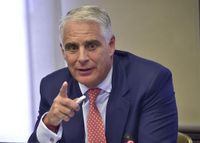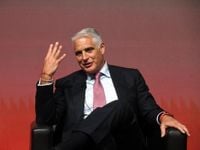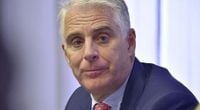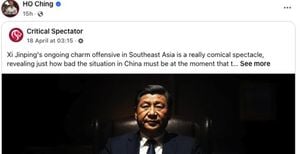On April 22, 2025, UniCredit announced that the Italian government's exercise of its "golden power" complicates the management of its public exchange offer (OPA) for Banco BPM. The bank, led by CEO Andrea Orcel, expressed concerns that the conditions imposed by Palazzo Chigi could undermine its ability to make sound and prudent management decisions in the future.
In a statement, UniCredit emphasized that these requirements might even lead to unintended consequences, such as potential sanctions against the bank for failing to comply with any of the imposed conditions. The government's stipulations include a mandate for UniCredit to exit its operations in Russia within nine months, which has raised significant concerns within the bank.
Specifically, the government's first requirement calls for the cessation of all activities in Russia by January 18, 2026. This demand has been met with skepticism, as it does not account for the extensive de-risking efforts UniCredit has already undertaken in the region. Additionally, the conditions require UniCredit to maintain the current weight of Anima's investments in Italian securities, a move the bank argues could compromise its ability to diversify and balance its portfolio effectively.
Furthermore, the government has requested that UniCredit maintain its loan-to-deposit ratio for five years, which has sparked strong objections. The bank argues that such a mandate should not be legislated, as lending policies are inherently influenced by market conditions.
Despite the contentious nature of these requirements, UniCredit has indicated that the only less conflicting demand is to keep the existing project financing portfolio of both banks intact. However, the overarching sentiment is one of frustration, as UniCredit questions the rationale behind the invocation of special powers in this domestic operation involving two Italian banks.
"The use of special powers in a domestic operation between two Italian banks is not common," UniCredit stated. "It is unclear why it was invoked in relation to this specific operation, but not for other similar transactions currently underway in the Italian market." This sentiment reflects a broader concern about the fairness and consistency of governmental oversight in the banking sector.
In light of these challenges, UniCredit is contemplating its next steps. The bank's legal team is exploring two main options: drafting a letter to the government to express its observations regarding the imposed conditions and potentially filing an appeal to the Regional Administrative Court (Tar). The letter would serve as a preliminary step before any formal legal action is taken.
Andrea Orcel has been vocal about his irritation with the government's intervention, viewing the golden power exercise as an unwarranted intrusion of politics into market operations. He has indicated that the bank needs to assess whether the proposed remedies from the government are feasible or if they will hinder the acquisition process to the point of making it unviable.
Despite the obstacles, Orcel maintains that the strategic rationale behind the acquisition remains intact. He believes that merging with Banco BPM would create a larger entity capable of making more significant investments in Italy. However, the financial logic of the operation is now under scrutiny, with the CEO expressing concerns that the government's conditions could undermine the deal's viability.
Another critical point of contention is the government's directive regarding Anima Holding's investments in Italian issuers. UniCredit is seeking clarity on what the government expects in terms of maintaining the current investment levels in the event of a merger between UniCredit, Banco BPM, and Anima.
Additionally, the loan-to-deposit ratio of both banks, currently standing at 96.4%, must not be reduced, further complicating UniCredit's operational flexibility. The bank has also been attempting to divest its Russian subsidiary, which has proven challenging due to a lack of adequate offers, risking a scenario where it may have to relinquish its assets to the Russian government.
As the clock ticks down to the scheduled start of the OPA on April 28, 2025, UniCredit faces mounting pressure to navigate these regulatory hurdles. The bank has reiterated its commitment to managing client assets in their best interest and continues to reduce its presence in Russia, a move that has seen a 90% decrease over the past three years, in line with ECB directives.
In summary, the golden power requirements imposed by the Italian government present significant challenges for UniCredit as it seeks to acquire Banco BPM. The bank's leadership is grappling with the implications of these conditions on its operational freedom and strategic objectives. With the offer date fast approaching, the outcome of this situation remains uncertain, as UniCredit prepares to respond to the government's demands while safeguarding its management principles and future growth.








